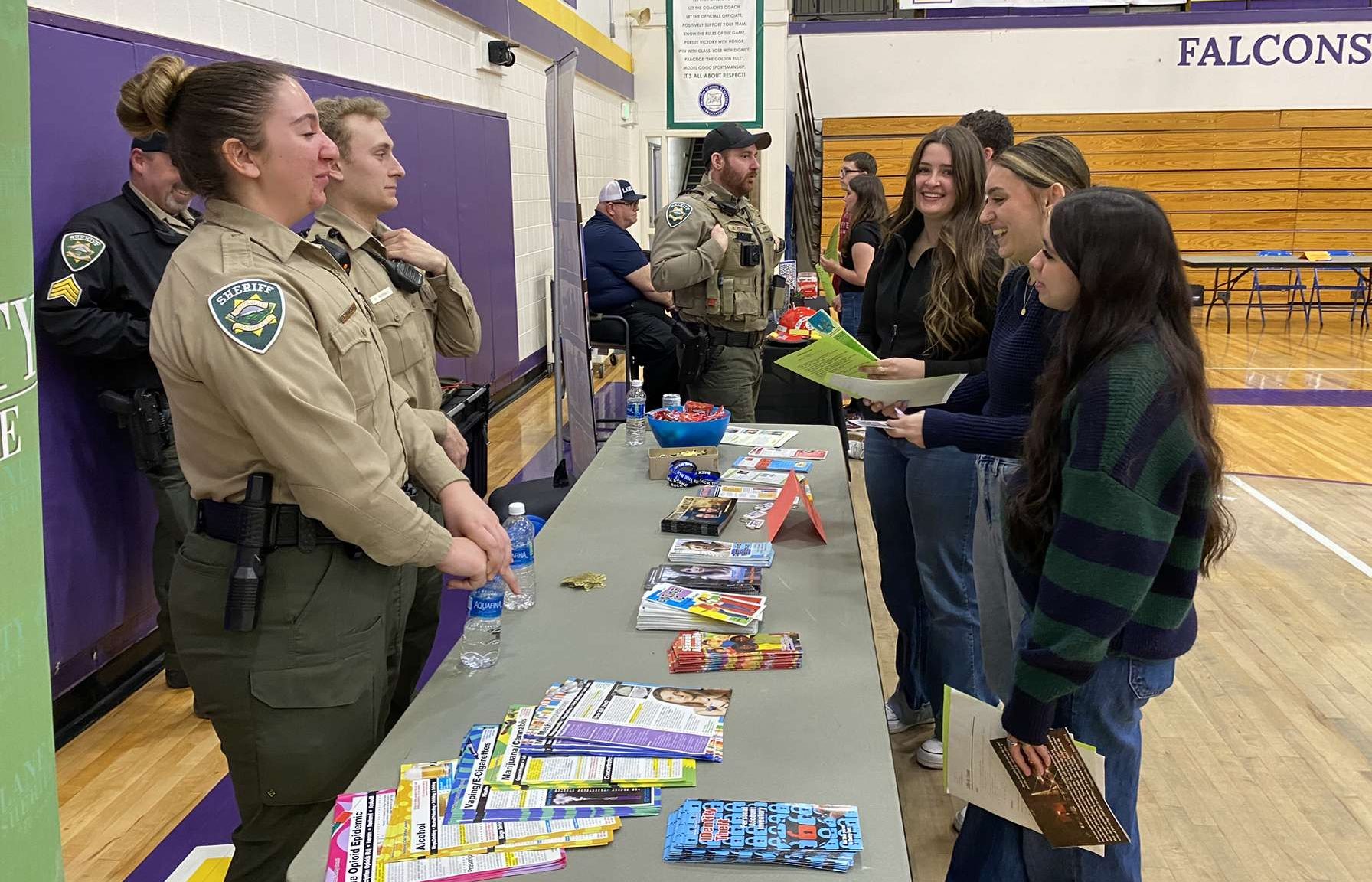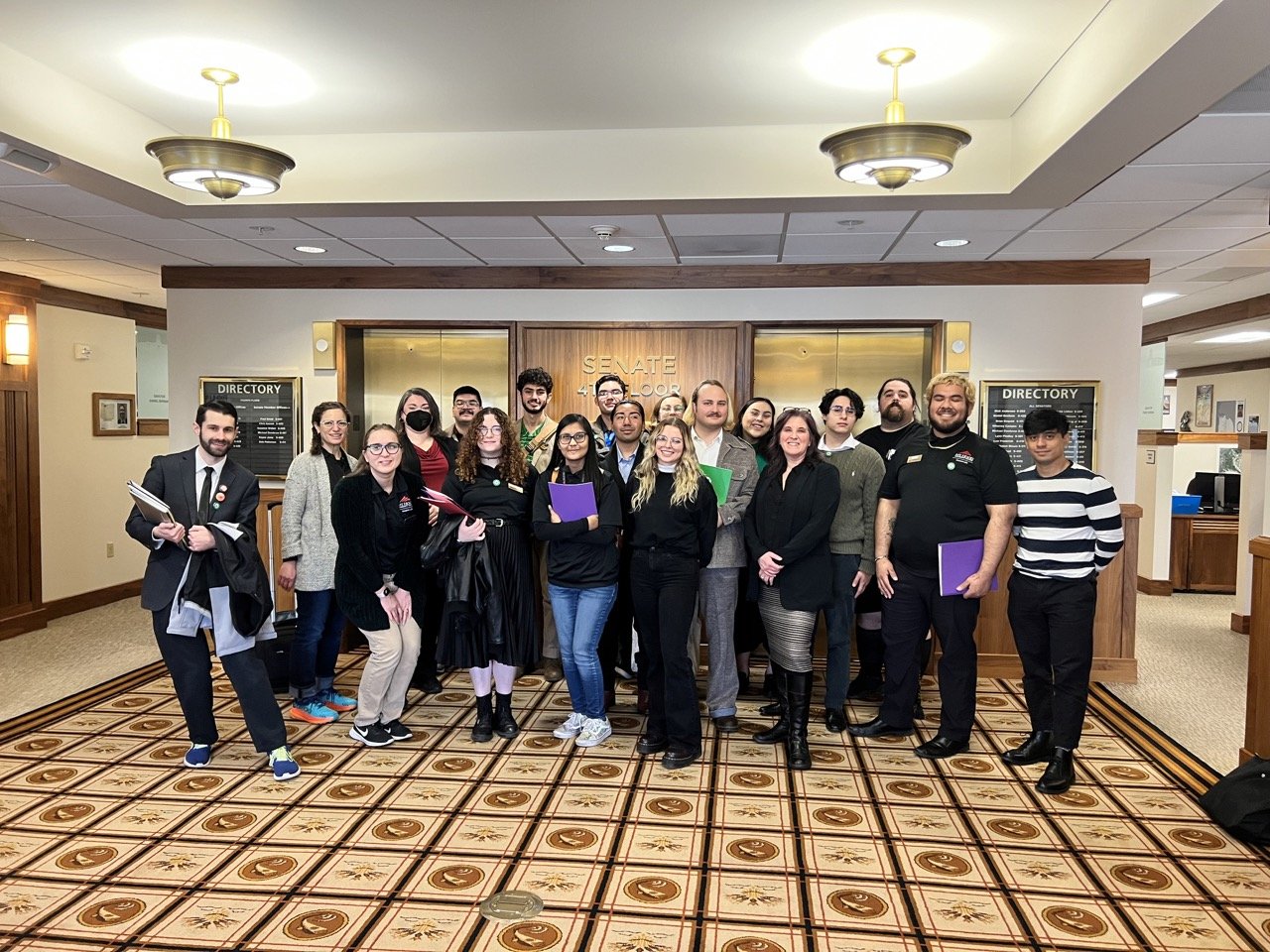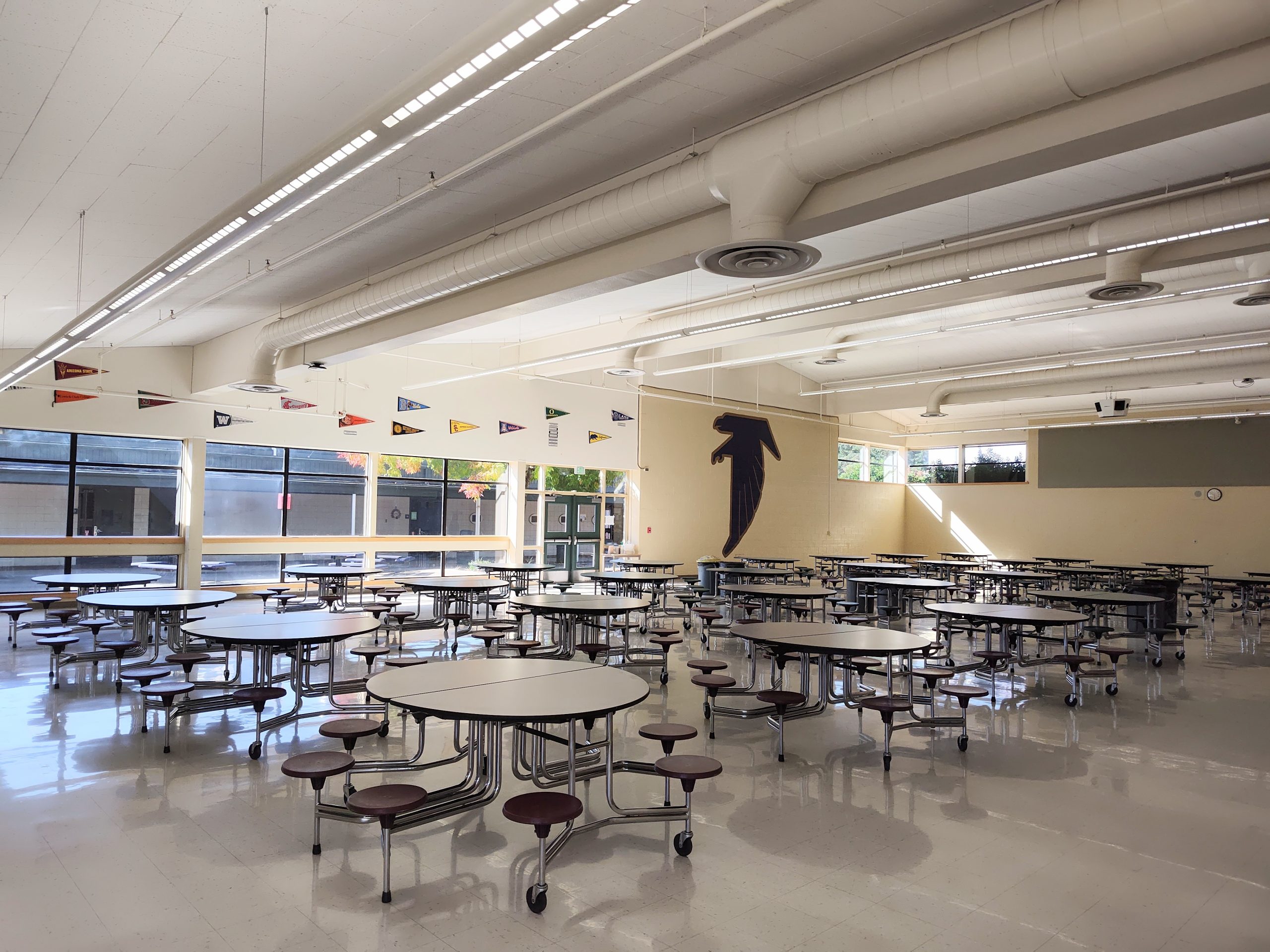
EHS Reacts to Presidential Order to Scale Back Department of Education
President Donald Trump signed an executive order on March 20 calling for the closure of the Department of Education.
The Department of Education, or DoE, manages things like student aid, the FAFSA and student loans. This shutdown means that many high school seniors are unsure of what financial aid they will be able to receive going into college this year.
Although the order calls for the complete shutdown of the department, it is unclear if a full shutdown will happen. Normally, it would require congressional approval to actually go through. Whether or not a shut down goes into full effect, the order has already caused the department to shrink in scale.
On March 21, half of the DoE’s work force was put on administrative leave in response to the order cutting its staff from 4133 down to 2183. The department is set to maintain its statutory programs, including managing loans and grants, according to the U.S. Department of Education’s website.
Whether student aid programs delivered through the FAFSA will be continued by the department is unclear, making some students worry about the future of student aid.
Elmira High School senior Jacob Bradley is worried about students’ abilities to attend college given the changes.
“I think it is not good because our universities are already paying a high price and if there is no federal funding then a lot of people can’t go to university,” said Bradley.
The situation is also unique because of how little institutions know about how much of the order is actually going into effect.
EHS counselor Court Wirth says that for other major events, such as last year’s ice storms, colleges have been proactive in communicating with high schools with guidance, however he has received no information from them about the department shutdown.
“I’m reading what’s out there but we’ve not been receiving any guidance,” Wirth told Falcon News.
Wirth’s advice to seniors who are worried about their federal student aid is to be proactive about contacting their prospective colleges to make sure they are making the most informed decisions regarding the subject.
“What I would advise students to do and what I would do is reach out to whatever college they are considering,” said Wirth.
Currently, there are multiple cases going to court regarding the order, so the extent that it will impact students is still unclear.
EHS Reacts to Presidential Order to Scale Back Department of Education
The full impacts of the order are still unclear
Breakfast to Return to Countryside
Temporarily stopping due to rising egg prices, it will be fully open again on Thursday
EHS Theater Production Class Takes the Stage
The group is currently preparing their performance for ‘Sense and Sensibility’
Elmira High School Seniors Secure Win for the Class in Annual Rough ‘n’ Tough Fundraiser
The seniors had a successful win and raised $3,200 for their grad night
Important Senior Graduation Requirement to be Available at EHS Soon
The career fair and mock interviews will be hosted in the main gym Wednesday
Rough ‘n’ Tough Volleyball Returns to EHS
Seniors and juniors will compete for the chance to take on staff members
EHS Launches New Hall Pass System
SmartPass provides data to school officials to monitor class attendance issues
Elmira High School Prepares to Hold OBOB Regionals
The competition will be held on Saturday and is in need of volunteer help
Senior Layla Burgess Commits to Corban University Softball
She says she is excited to strengthen her relationship with God
Elmira High School Offers College Financial Aid Night to Students and Family
ASPIRE access specialist Nomi Pearce will be in attendance
Youth Activity Council Returns to Elmira High School with New Faces
The club promotes public health in partnership with Orchid Health
Note From the Editor: Falcon News Experiencing Technical Issues
Update: A temporary fix has allowed the website to be updated properly
Bond Projects Are On Track in the Fern Ridge School District
The outdoor athletics facilities expansion and remodeling will begin April 1
EHS Staff and Students React to Oregon Ducks Undefeated Season
The team heads to California to face the Ohio State Buckeyes in the Rose Bowl
Elmira-Crow Wrestling Kick Off Season with Intra-Squad Dual
Update: Due to illness, the team will no longer be competing at Stayton on Saturday
Lane Event Center Holds Holiday Market During Gift-Giving Season
The event will be open from Saturday to Tuesday leading into Christmas
Photo Gallery: Veneta Lights Up with Annual Light Parade and Tree Lighting
Both events were organized by the Fern Ridge Chamber of Commerce
Leadership Hosts Holiday Bazaar as Part of Community Event
This was the first year it was hosted at Elmira High School
Elmira Cheerleaders Prepare for Competitions
The team will attend basketball games for the winter season
EHS National Honor Society’s Adopt-a-Family Program Returns for Holiday Season
The program starts Tuesday and will run for nine days
Toys for Tots Spread Holiday Cheer to Youth in Lane County
Donations are still open and community members are encouraged to volunteer
Leadership Class to Host Holiday Bazaar at EHS
The class will sell wreaths and the seniors will put on a bake sale for fundraising
Powder Puff Flag Football to Kick Off Friday Night
The junior and senior girls are going head to head for a grad night fundraiser
Oregon Student Association Forced to Shut Down After 50 Years
Recent events have made it “implausible for OSA to continue operating”
United Way Brings the Dolly Parton Imagination Library to the Fern Ridge Area
Children that are signed up will get a free book every month
EHS Senior Katie Kilcullen Kicks Up Dust as Rodeo Queen
She will begin her reign for Miss Teen Rodeo Oregon at the start of the year
EHS Advanced Auto Class Kicks It into Gear with Truck Project
The students decided to create something that can be used by the school
Elmira High School Handles School Threat Early into Academic Year
Lane County Sheriff’s Office deems threat non-credible after investigation
Fern Ridge School District Offers Free Meals to All Students
The district qualifies for the Community Eligibility Provision after a recent amendment






























